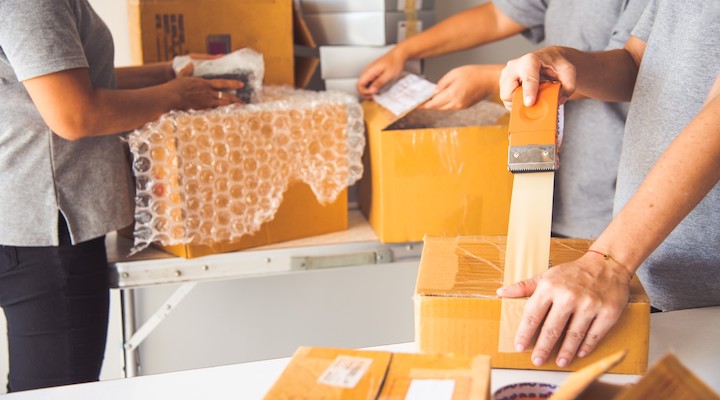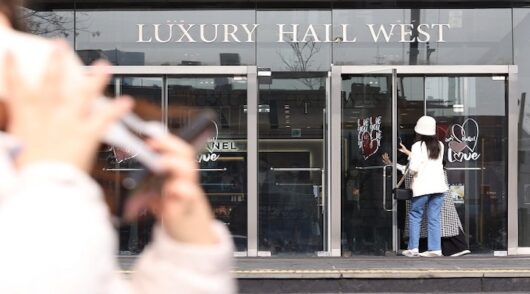Alibaba says sustainability and inclusiveness will be emphasised in this year’s 11.11 Global Shopping Festival, an event that by the company’s own admission “showcases the tremendous consumption power of Chinese consumers”.
Without a hint of irony, Alibaba’s chief marketing officer Chris Tung launched this year’s event, the 13th since the concept was founded, with the statement: “This year’s festival marks a new chapter for 11.11. We believe we must leverage the power of 11.11 to encourage sustainable development and promote inclusiveness to consumers, merchants and partners across our ecosystem.”
Yet, as always, the festival’s primary objective will be to sell as much merchandise as possible – whether people need it or not – and thus eclipse last year’s record of US$74.1 billion – counting the period from when pre-event promotions began on November 1 through to midnight on 11.11. That was 26 per cent higher than during the same timeframe in 2019. Not to be left out, rival JD generated a further $40.9 billion in trade over the same period.
This year’s 11.11 festival will feature a record 290,000 brands with Tmall offering more than 14 million deals to more than 900 million consumers across China, according to an Alibaba statement released overnight. Once again, the event will start with a presale window from November 1 to 3, with the main event beginning at the stroke of midnight on November 10.
KoLs will be rostered on from today, with more than 700 “leading KOLs, celebrities and brand representatives” signed up for live-streaming sessions. Alibaba considers live streaming to be “a key consumer engagement mechanism for brands and merchants to build awareness and drive sales”.
Taobao will introduce a new feature this year allowing people to share the contents of their digital shopping carts with friends and family, “creating a more social shopping experience”.
But despite this heavy push towards conspicuous consumption, Alibaba is trying to convey an impression of wokeness when it comes to growing global concerns about sustainability.
“Tmall is taking action to promote ‘green’ lifestyles this 11.11 by featuring a dedicated vertical to showcase energy-efficient and low-impact products, as well as issuing RMB100 million (US$15.6 million) worth of “green” vouchers to incentivise shopping decisions that contribute to an environmentally friendly lifestyle.”
In addition to that, Alibaba’s logistics arm Cainiao Network will introduce package recycling across 10,000 Cainiao Post Stations in 20 cities to reduce the festival’s carbon footprint beginning on November 1. Last year, Alibaba said the Cainiao Network processed more than 2.32 billion delivery orders across the 11 days, but it is not clear how much of the mountain of packaging involved was recovered or recycled.
“With [the] increased use of green technology, Alibaba expects to further reduce the carbon emission per order during this year’s 11.11.”
On a more promising note, Alibaba will be encouraging shoppers to participate in its Good for Good program, launched in 2006, in which the e-commerce giant enables merchants to donate a portion of their sales to a charitable organisation of their choice. When shoppers share their Goods for Good purchases during the festival with friends and family, Alibaba will make an RMB1 (US16 cents) donation for every successful social media share. The proceeds will support three charitable purposes: elderly people living alone, “left-behind children” in remote areas, and low-income workers.
- Main image: @photobyphotoboy via Twenty20.






